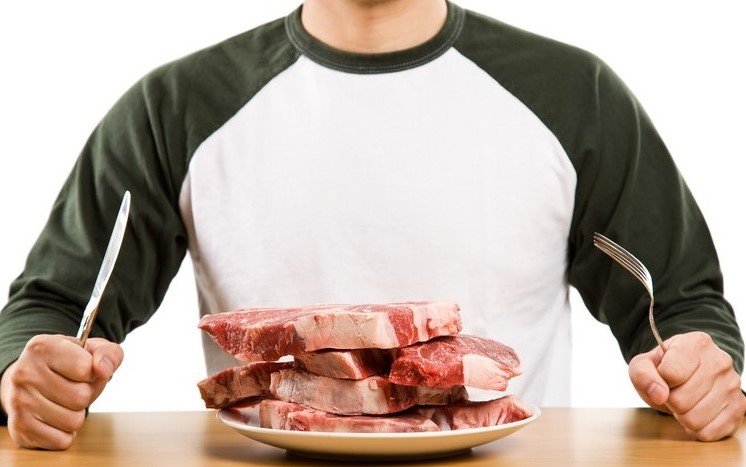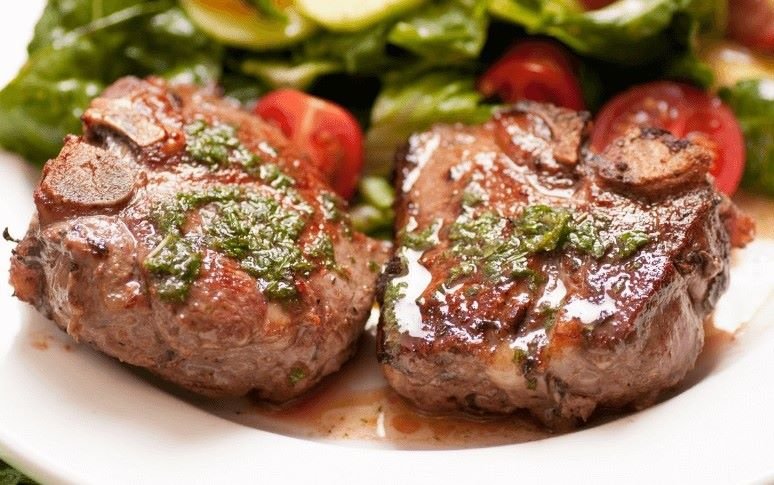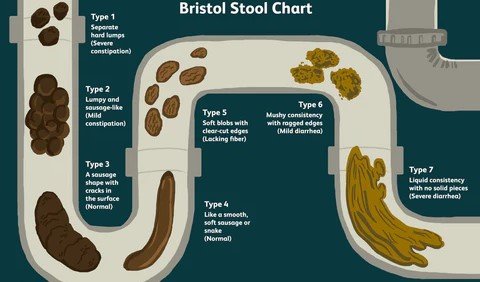Carnivore Diet Constipation – Take Action Now!

Many people who start the carnivore diet worry about constipation due to lacking fiber. After all, it’s widely believed that fiber is essential for regular bowel movements…right or wrong?
Constipation on a Carnivore diet is often temporary and related to fiber intake and digestion changes. you can ease constipation by:
- Drinking plenty of water
- Eating enough fat
- Balancing protein
- Managing stress
- Staying active
Be patient as your body adjusts, and seek medical advice if issues remain constant.
Let’s take a closer look at “carnivore diet constipation,” its possible causes, and tips for getting your bowels moving again.
Table of Contents:
Carnivore Diet Constipation – Some Causes!
1. Dehydration:
When you start a Carnivore diet, your body loses water stored in your liver and muscles, which explains the quick weight loss you might see at first.
Reducing carbs also means your body releases a lot of water. This is because glycogen, the molecule that stores carbs, is linked to water. So, when you burn glycogen by cutting carbs, you lose water, too.

Note: This water loss can lead to dehydration, lower electrolyte levels, and constipation on a Carnivore diet.
2. Low Fiber Intake:
When you reduce or eliminate fiber-rich foods, like fruits, vegetables, and grains, from your diet. You may experience changes in bowel movements. Fiber adds bulk to stool and helps maintain regular bowel movements.
Without enough fiber, you might face constipation and other digestive issues. This is why it’s important to monitor your body’s response and make adjustments as needed. Staying hydrated and maintaining a balanced intake of fats can help you.
3. Digestive System Adaptation:
Starting a Carnivore diet means your body, especially your digestive system, must adjust to a diet high in fat and protein with few carbs.
These big changes can upset your digestive system, causing issues like diarrhea, constipation, or other bowel problems.
4. Consuming Too Much Protein:
The Carnivore diet involves eating a lot of meat, which means a high protein intake. Because protein contains amino acids, this can lead to constipation.

To manage protein intake, try eating fattier cuts of meat. This helps your body convert some of the protein into carbohydrates for energy, which can reduce constipation.
5. Changes to Digestive Bacteria:
Our stomachs and digestive systems are home to many helpful bacteria when you switch from a high-fiber, high-carb diet to the Carnivore diet, which has almost no carbs. The balance of these bacteria changes.
Carb-eating bacteria may die off while fat-eating bacteria increase. This shift takes time and leads to slower bowel movements and constipation.
6. Bile Production:
Bile is a crucial digestive fluid the liver produces and stores in the gallbladder. Its primary role is emulsifying fats, breaking them into smaller particles for easier digestion.
When you consume a significant amount of fat, your gallbladder and liver release bile to handle the digestion process. This can take time. It can lead to slower bowel movements and potential constipation because your body adjusts to the increased fat intake on the carnivore diet.
7. Stomach Acidity:
Stomach acid is a powerful solvent that helps break down proteins. When you switch to a carnivore diet and eat more meat. Your body needs to produce more stomach acid to digest it.

This process takes time and leads to increased digestive activity. As a result, bowel movements can slow down, causing constipation.
Finally, you’ve learned some causes of constipation on the Carnivore diet. The next sections will explain the symptoms Of Carnivore Diet Constipation. For global talk, visit this Quora website.
The Symptoms Of Carnivore Diet Constipation – Must Consider It!
1. Infrequent Bowel Movements: If you go many days without pooping and it takes longer than before.
2. Hard and Dry Stools: If it’s difficult to poop and the stools are drier and harder than before.
3. Pain during Bowel Movements: If you feel pain or see drops of blood while pooping. Or if you have to strain hard to poop.

4. Incomplete Defecation: Feeling like your bowel movements are incomplete.
5. Abdominal Discomfort: If you have headaches, stomachaches, bloating, excess gas, cramps, or always feel full.
How To Get Fiber On A Carnivore Diet – Have A Look!
Getting fiber on a Carnivore diet is challenging because it focuses on animal products, which are typically low in fiber. However, there are a few options that can offer some fiber:
- Organ Meats: The liver and kidneys contain small amounts of fiber.
- Bone Broth: Bone broth contains gelatin, which provides a small amount of fiber. This can help add some bulk to the stool.
While these sources are limited, they can still contribute a bit of fiber to your diet. If you find yourself struggling with constipation, these options may help. Focusing on hydration and fat intake can also assist in maintaining regular bowel movements.
How To Avoid Carnivore Diet Constipation? — Tips For You!
1. Eat More Fat:
Fat helps keep your digestive system running smoothly. On the Carnivore diet, eating fatty meats, fatty fish, and healthy fats can ease constipation. Fatty foods add lubrication to your stool, making it easier to pass.

Fat fasting is another option where you focus on consuming high-fat foods while minimizing protein and carbs. This approach can boost the benefits of dietary fat and may help with constipation.
2. Balance Protein Intake:
Eating too much protein can lead to constipation. While protein is essential, too much can slow digestion and make bowel movements harder. Adjust your protein intake based on how your body responds to avoid this.
You can manage your protein intake by following these steps:
- Notice how your body responds to varying levels of protein. If you experience constipation, try reducing your protein intake a bit.
- Mix protein and fat in your meals. To balance your diet, combine fatty cuts of meat with moderate protein sources.
- If you need to change your protein intake, gradually allow your digestive system to adapt.
Read Also: Can You Have Mustard On Carnivore Diet – Option For You!
3. Sleep Enough And Reduce Stress:
Don’t overlook how important sleep and stress management are for digestion and bowel movements. Stress and anxiety can disrupt your digestive system. So, getting enough sleep and managing stress can help keep things running smoothly.

4. Drink Enough Water:
Water is crucial for keeping my bowel movements healthy and my digestive system calm. On a carnivore diet, where I eat mostly meat, I need to drink plenty of water daily. High meat intake can lead to dehydration because your body uses more water to process the protein.
Drinking enough water helps keep my stools soft and supports overall digestion. I should aim to drink several glasses of water throughout the day to stay hydrated and help digestion stay smooth.
5. Exercise:
Regular physical activity, like walking or jogging, is key in maintaining healthy bowel movements and improving digestion. Exercise helps stimulate the muscles in your digestive tract, promoting regular and smoother bowel movements.
It also helps reduce stress, which can impact digestion. Try to get 30 minutes of moderate exercise most days of the week. Activities like walking, jogging, or even light strength training can keep your digestive system functioning well.
Note: A study from the Journal of Clinical Gastroenterology found that 80% of people. who followed the Carnivore diet for three months had regular bowel movements. They didn’t have major constipation problems.
Carnivore Diet Poop – What Is Normal Poop!

- Since the Carnivore diet lacks fiber, it’s normal to poop less often. Some people may have a bowel movement daily or every few days. It might be less frequent but still regular and predictable.
- Meat takes longer to digest than plant foods, so you may find yourself pooping less often. This isn’t usually a sign of constipation.
- Normal poop on a Carnivore diet is typically firm and sausage-shaped. It might be softer and easier to pass if you’re well-hydrated and your digestion is healthy.
Note: At the start of the Carnivore diet, watch for any color changes in your poop. These can explain how your body is adjusting to the new diet.
Must Read It: Carnivore Diet Diarrhea – Take Control Of Your Health!
Tips for managing constipation on the Carnivore diet – Must Consider!
1. Eat Fatty Cuts of Meat: Choose meats with higher fat content, like ribeye or pork belly.
2. Include Fatty Fish: Salmon and mackerel are good options.
3. Add Healthy Fats: Use animal fats, like tallow or lard, in your cooking.
Note: Remember to drink plenty of water and stay active to support healthy digestion.
How Long Does Constipation Last On A Carnivore Diet? – An Overview!

1. Constipation on the Carnivore Diet: It varies from person to person and depends on factors like your body, eating habits, hydration, health, and lifestyle.
2. Typically Short-Term: It’s usually a temporary issue as your body adjusts to the diet.
3. Address Early: It’s important to manage constipation early to prevent serious digestive problems.
4. Seek Medical Attention if Needed: Prolonged constipation might indicate an underlying issue that needs medical care.
5. Follow the Guide: To manage constipation effectively on the Carnivore diet, use the step-by-step guide mentioned above.
Frequently Asked Questions:
1. How long does it take for gut to adjust to a carnivore diet?
The carnivore diet is a lifestyle change, not a quick fix. It can take weeks or months for your body to adjust and fully see results. Patience and consistency are key.
2. How to stop constipation on a carnivore diet?
Some people get constipated on the carnivore diet because of the lack of fiber. To help with constipation, try exercising regularly, drinking lots of water, and setting a time and place to go to the bathroom daily.
3. How Many Times a Day Should You Poop?
Most people, around 95.5%, follow the “3-3 rule,” meaning it’s normal to have bowel movements anywhere from three times a week to three times a day. The (NIDDK) says having at least three bowel movements per week is considered healthy.
Conclusion:
The carnivore diet comprises only animal-based foods and excludes fiber-rich vegetables and fruits. It’s high in fat and protein and low in carbohydrates, which can lead to constipation. To avoid this, drink plenty of water, eat enough fat, and stay active.

Hi! I’m Olivia Steeve, a certified nutritionist with over 11 years of experience in the field of diet and nutrition. At DietFitts, I focus on providing scientifically-backed, practical advice to help individuals achieve their health and fitness goals through balanced eating. I share insights, tips, and personalized guidance to help you make healthier choices and live your best life.





